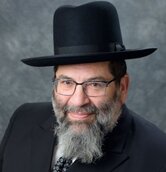Proper Incentives for Learning

It is the practice of many rebbeim to motivate their students through incentives and to reward successful participants in various contests (for blatt learned, hours learned, high marks, etc.) with a trip toward the end of the year.
There are two ways of doing this:
1. The boys who successfully meet the requirements — i.e., those who learn the necessary number of blatt — can come along. The benefit of this method is that the reward is given for individual efforts and each boy has to rise to the challenge and earn his reward. The downside is that sometimes a few boys, or even one boy, can be left behind.
2. It is a class incentive, and it is for “all or no one.” The reward is given to the class as a whole if they jointly meet the requirement — i.e., they finish the mesechta, learn a certain number of joint hours, etc. The benefit is that no one is left behind, although the individual no longer has to produce.
Contests for individuals should be for individuals. The only way to motivate children is to give individual recognition. Your point of not hurting those who cannot participate is well taken. Chazal also worried about this and we find the concept of, “shelo levayesh mi she’ein lo,” making sure not to embarrass those who are lacking. Even children who cannot excel in their limudim as well as others can usually excel in some area that can be incorporated into the same contest.
For example, in our yeshiva, there is a major Gemara be’al peh contest, which is divided into two parts, milah bemilah — where the child memorizes every word of the Gemara but is not asked to explain it all — and shakla vetarya — where he explains the ideas, questions, and answers, but not the actual words. There are many children who cannot handle milah bemilah and others who cannot handle the havanah aspect of shakla vetarya. Then, there are some who cannot do either of them. For these boys, we have Gemara bifnim, where they translate from an open Gemara. Baruch Hashem, nearly any child who is motivated to enter a contest of excellence can handle one of these three.
We try very hard to ensure that each child receives recognition. The same can be done in all contests, beginning with davening in first grade and later for Mishnayos be’al peh. Those who cannot read and have difficulty davening are rewarded for being on time or for effort. In our junior-high minyan, we have a contest for those boys who do not speak while wearing tefillin. There is no boy over bar mitzvah who cannot participate. It takes a caring rebbi — which, baruch Hashem, today’s rebbeim are — to find a way to reward every single bachur. A rebbi like yourself, who worries about individuals, is teaching true Torah, that of Toras chessed.
Reprinted with permission from ArScroll/Mesorah Publications
Rabbi Yaakov Bender was born in the Williamsburg section of Brooklyn to a family that has been steeped in Torah learning and education for generations. Rabbi Yaakov Bender feels that his greatest accomplishment in education is his founding of the Rabenstein Special Education Center at the Yeshiva. More than 100 special education and multi-handicapped students from all over the country are served by what is considered to be one of the best special education centers in the United States. Rabbi Bender reaches out to every student to bring out the most in each and every child. Each child, in turn, learns the value of every individual. (bio from covenantfn.org)







